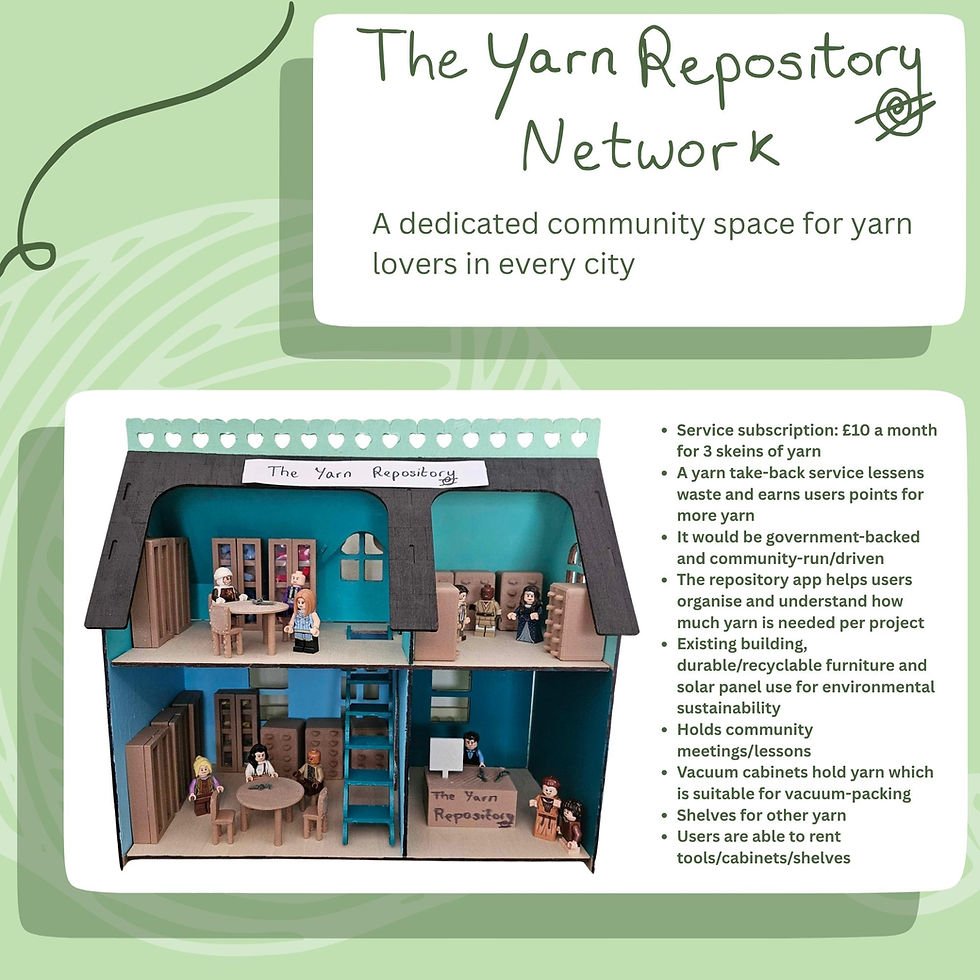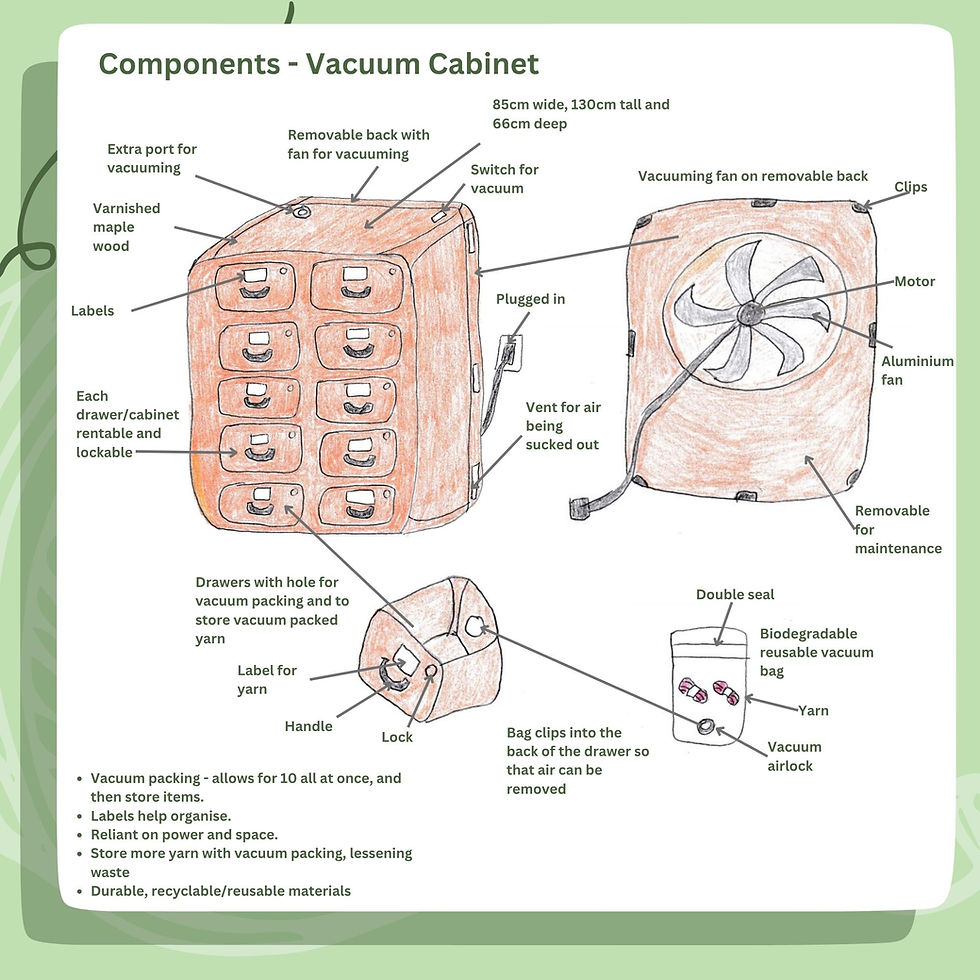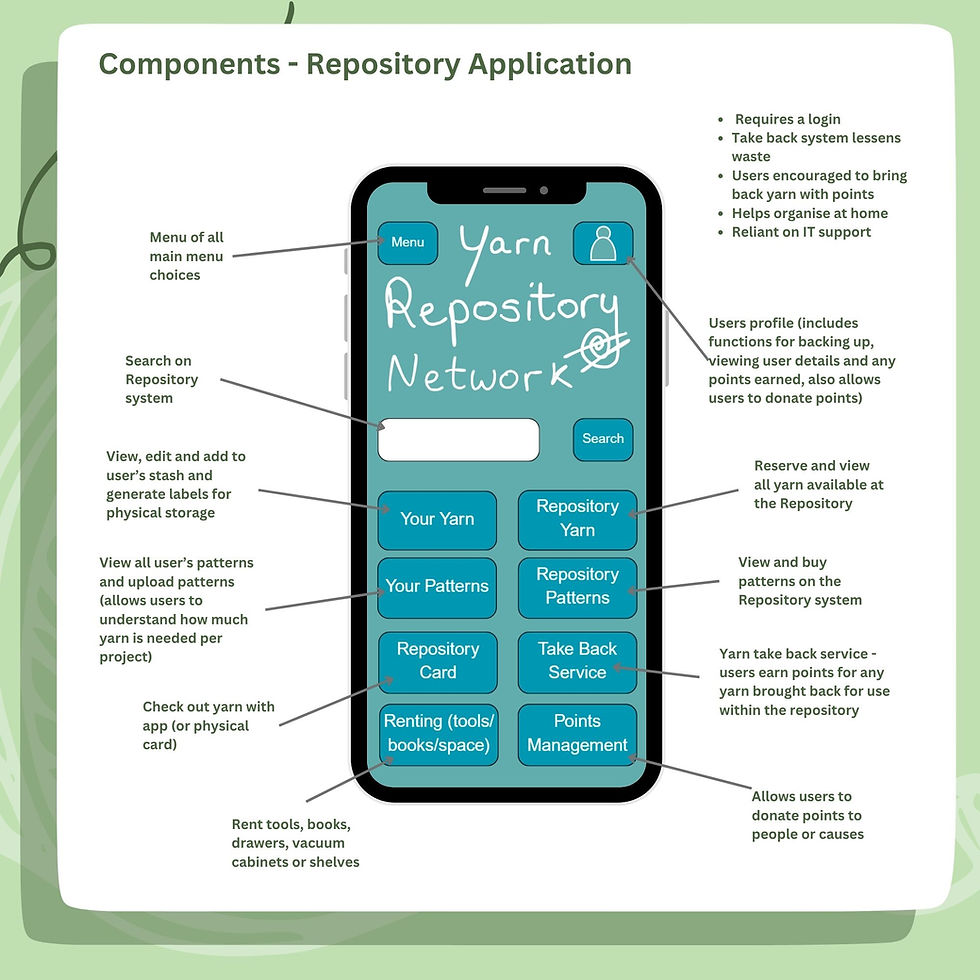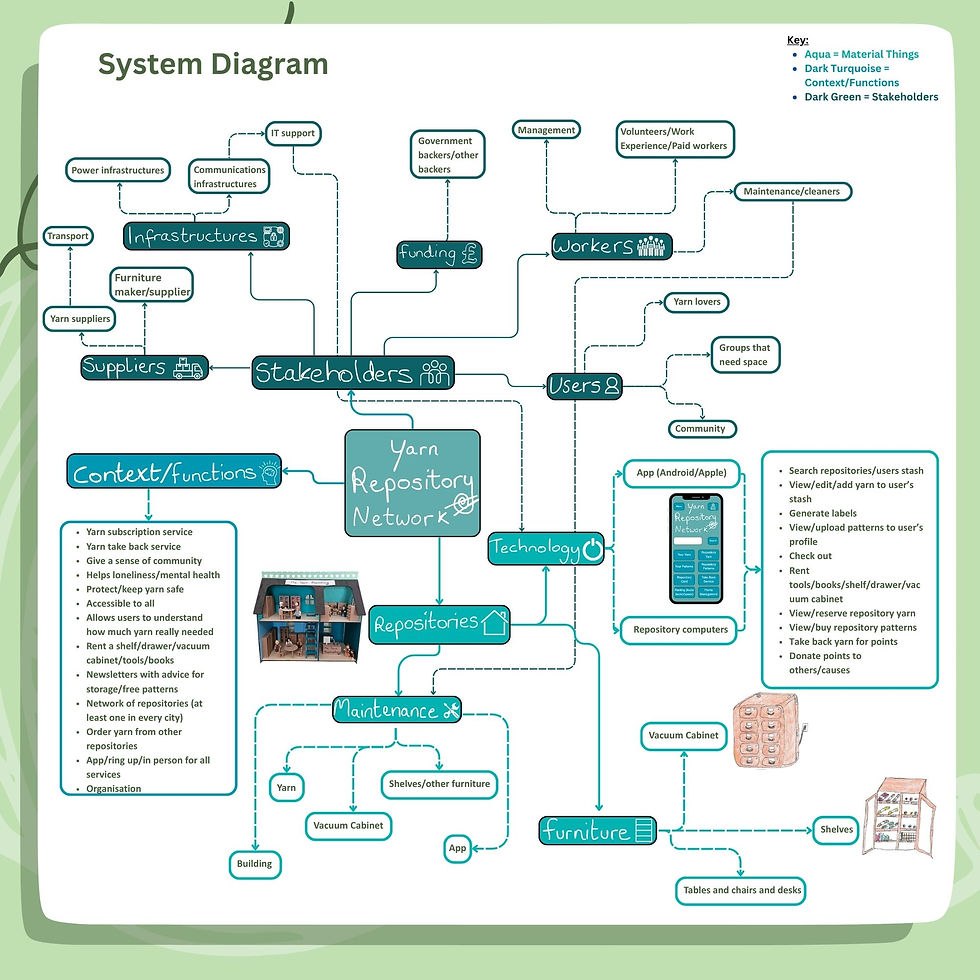
The Yarn Repository Network
Helen Porter
The Yarn Repository Network (YRN) is a socially and environmentally sustainable subscription service that provides city-based yarn storage, organisation, and sharing through innovative vacuum cabinets, community resources, and a dedicated app, helping crafters access and manage yarn supplies without compromising relaxation or mental health.
Design Problem
Yarn-related crafts, such as knitting and crochet, gained popularity during the pandemic, according to Google Trends (Google Trends, 2025). Research conducted online, using a survey and focus groups concluded that yarn is the most challenging fibre supply to store/organise due to its bulkiness, variety and need for protection. Survey respondents also reported that despite numerous solutions, they still experienced issues with their storage. Thus, the problem statement chosen was ‘How can we ensure that maintaining yarn supplies does not impede the use of yarn-related crafts for relaxation and mental health?’
Various solutions were generated using associative thinking, morphological analysis, and brainstorming to produce ideas that ranged from products to systems. From these ideas came the Yarn Repository Network (YRN), which was chosen due to its potential innovativeness and the way it allows for yarn storage and organisation while being socially sustainable.
Description of the Project



The YRN is a network of repositories in every city that allows users to subscribe for £10 a month for three skeins of yarn. It offers a take-back service, which reduces yarn waste and enables users to earn points for use within the repositories. Users can use the app to manage their home yarn stash by marking types, weights, amounts and physical location of their yarn. Pattern services are also included, allowing users to upload a pattern and determine their yarn needs.
The YRN stores yarn using a mixture of maple wood vacuum cabinets and shelves. The vacuum cabinets are designed to hold yarn which is suitable for vacuum-packing and allows for more yarn to be stored. Shelves hold all other yarn which are potentially more popular and cannot be vacuum-packed (wools). Users can rent tools related to their crafts, as well as shelves, drawers, and vacuum cabinets, to reduce the need for home stashes.



This project is socially sustainable through community meetings, lessons, and job opportunities. It also aims to be as environmentally sustainable as possible, utilising existing buildings, solar panels, and durable furniture that supports the circular economy. Therefore, the YRN helps users maintain any yarn needed without impeding their mental health.
About me
I am 36 and live with my husky! I am still not entirely sure what my goals are for after graduation. However, this module has helped me understand a lot about sustainability issues and the importance of designing with the planet and its inhabitants in mind.

